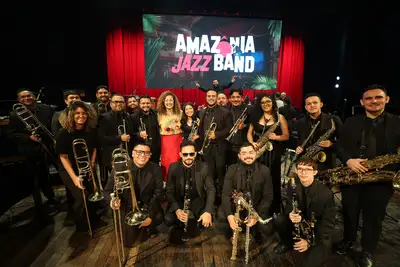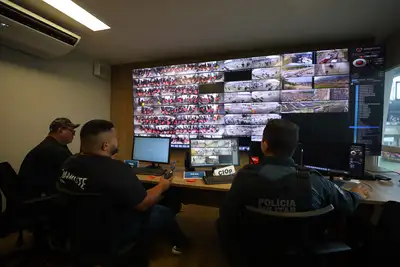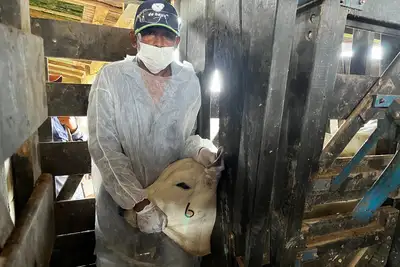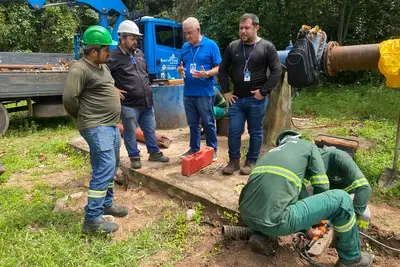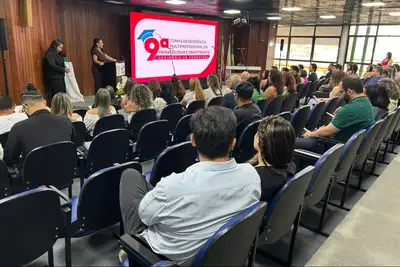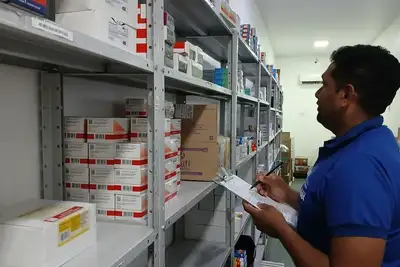Ancestral knowledge and food security guide Semas' participation in panel at COP30
The event brought together public managers, family farmers, traditional communities, and representatives from different Brazilian states to discuss how ancestral food connects to sustainability, environmental conservation, and public policies.
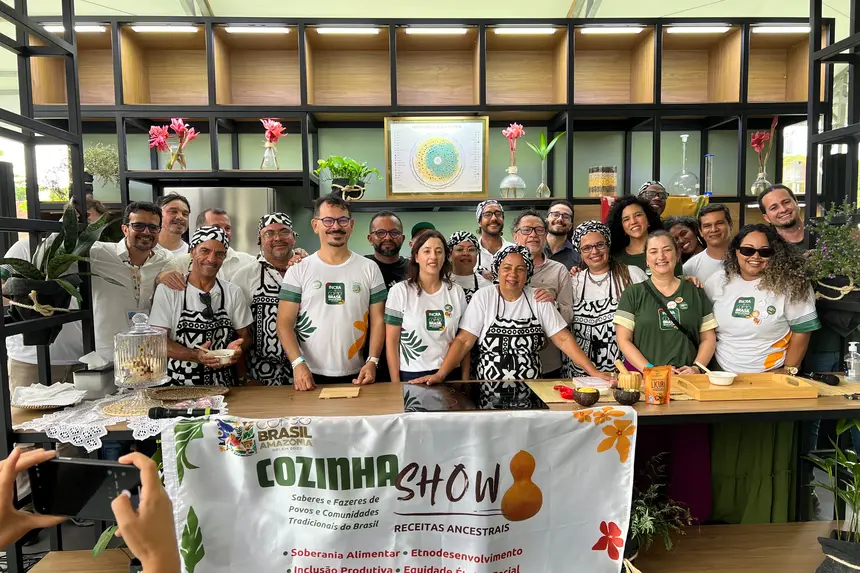
The relationship between food culture, environmental regulation, and the strengthening of traditional territories marked the panel "Cozinha Show - Knowledge and Practices of Traditional Peoples and Communities of Brazil," held on the afternoon of this Saturday (15), at AgriZone, Embrapa's space during COP30 in Belém. The event brought together public managers, family farmers, traditional communities, and representatives from different Brazilian states to discuss how ancestral food connects to sustainability, environmental conservation, and public policies.
The panel featured the participation of the Deputy Secretary of Environmental Management and Regularity of Semas, Rodolpho Zahluth Bastos, and the president of the National Institute of Colonization and Agrarian Reform (Incra), César Aldrighi, along with other guests.
The deputy secretary highlighted the recent advances in Pará's environmental policy and the expansion of direct assistance to family farmers.
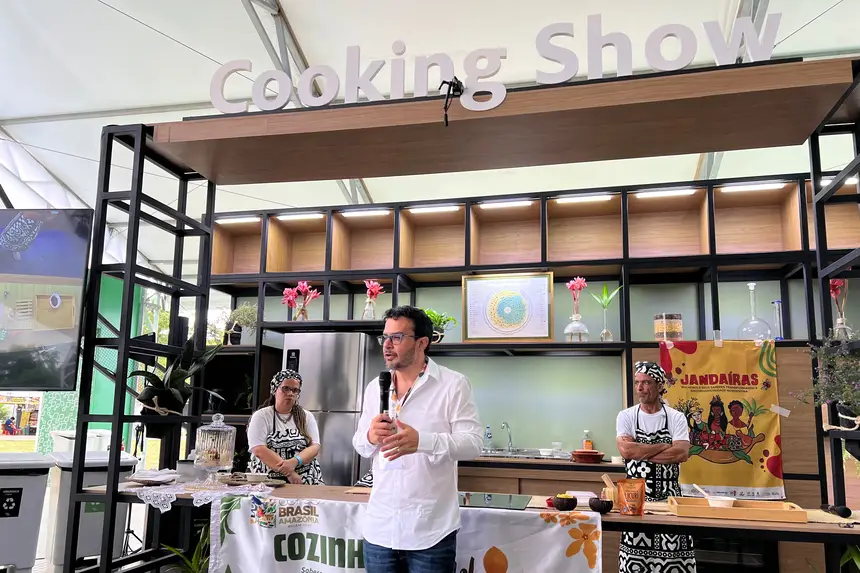
“Through the partnership between federal and state entities, several rural settlements in Pará have started to be served by a solid and consistent environmental regularity policy. Recently, we held eight community events of the Regulariza Pará program in a single day of service to family farmers, and four of these events were exclusively in partnership with Incra, in rural settlements. This has allowed us to scale up regularization, bringing the beneficiary settler into the environmental regularity system and, therefore, also ensuring access to public policies, such as rural credit,” he stated.
Next, the president of Incra, César Aldrighi, reinforced the relationship between territorial regularization, food sovereignty, and the preservation of the culture of rural and traditional communities. “Food is closely linked to the peoples who occupy the areas that Semas, along with the Land Institute of Pará (Iterpa) and Incra, seek to regularize. I have much to thank the State of Pará for all our partnership,” he said.
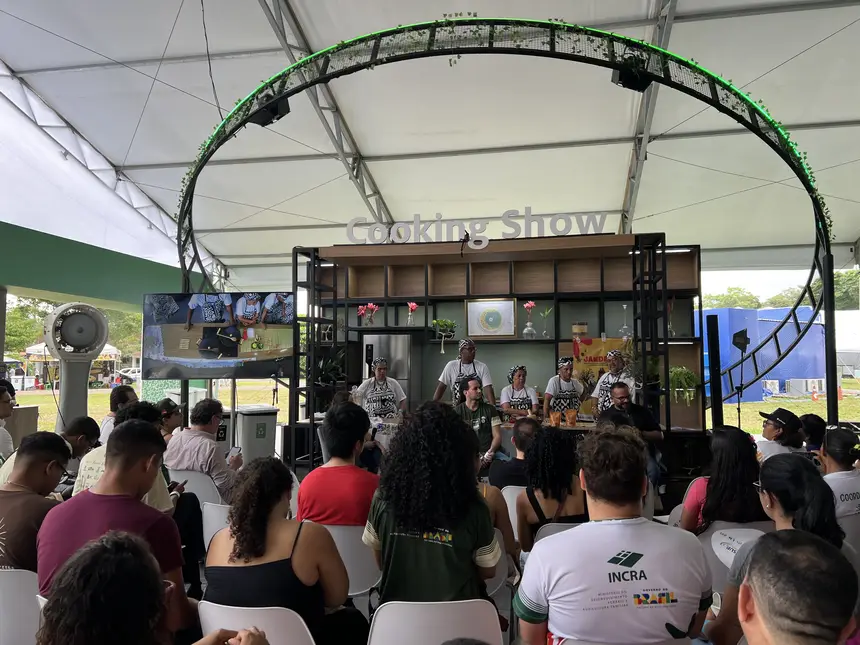
Ancestral cuisine: a tool for sustainability - the panel also showcased traditional culinary practices from various regions of the country. Representing two territories, the Quilombo do Brejal (Minas Gerais) and Morro do Salgueiro (Rio de Janeiro), chef Marcelo Rocha shared how food is an expression of resistance, identity, and ancestry.
“We prepared real food here, connected to our memories and territory. Food security involves understanding health in an integrated way. Our productive backyards, our medicinal herbs, and our traditional practices are intangible heritage of Brazil,” he explained.
Marcelo also emphasized the importance of valuing traditional knowledge within sustainability policies, reminding that foods, plants, cultivation techniques, and cultural practices have been passed down for centuries by communities.
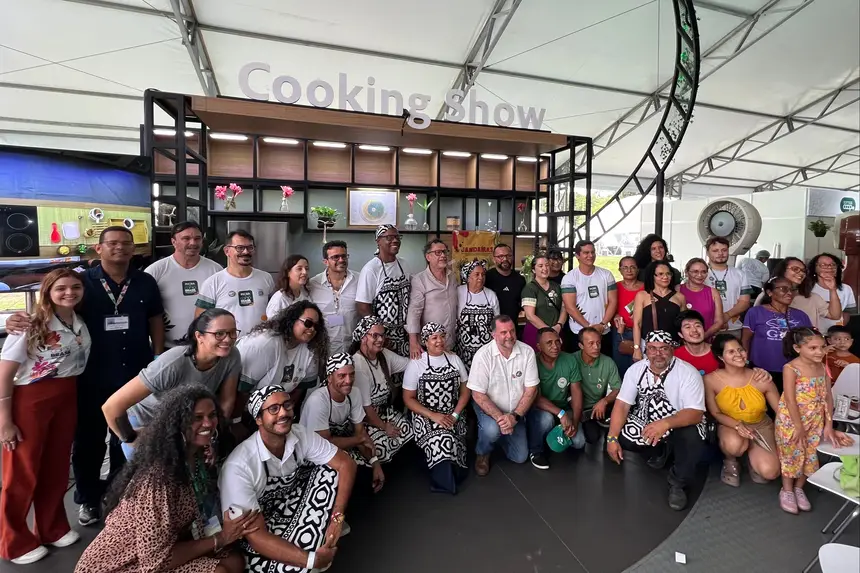
The deputy secretary of Semas highlighted how the public power can strengthen this recognition. “By strengthening family farming territories, settlements, and traditional communities, we are strengthening the food base of the country. The work we do together rescues food cultures and provides security for these producers to maintain their traditional production systems, ensuring subsistence for families and generating surpluses for commercialization,” concluded the deputy secretary of Semas.



